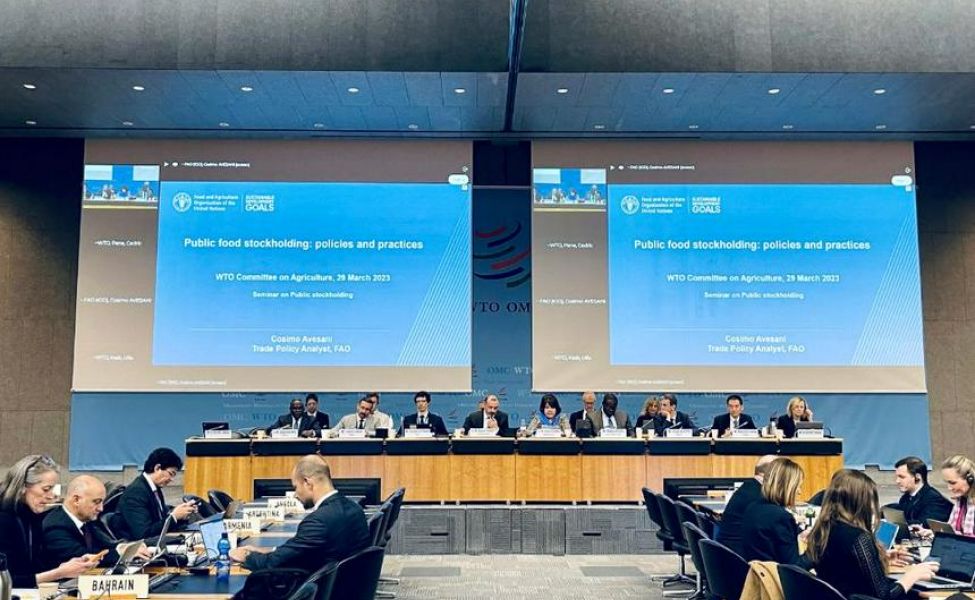
Ambassador Aitzhan also expressed her hope that the informative discussions will serve as a basis for further constructive negotiations on food security issues within the WTO
Permanent Representative of the Republic of Kazakhstan to the World Trade Organization and International Economic Organizations Zhanar Aitzhan moderated the WTO thematic session on "Public Stockholding for Food Security Purposes" at the event held within the WTO week dedicated to agriculture, Kazinform has learned from the press service of the Kazakh MFA.
The purpose of this session is an in-depth study of the role of public stocks and stockholding programs in ensuring food security as well as the exchange of experience of WTO members to identify best practices and challenges faced by governments in the implementation of these programs.
The keynote speakers of the event included Ambassador of Kenya Cleopa Kilonzo Mailu, representatives of the Ministry of Commerce and Industry of India, the Ministry of Agriculture, Forestry and Fisheries of Japan, the Permanent Mission of Brazil to the WTO, as well as experts from the Food and Agriculture Organization of the United Nations.
In her opening speech, the Permanent Representative of Kazakhstan noted that public stocks are an important part of agricultural policy in many countries, which are designed to ensure stable supplies of agricultural goods to the market, support farm incomes and protect the most vulnerable segments of the population.
However, stockholding programs can influence price levels and volatility in the market, which can negatively affect producers and consumers in other countries. Therefore, according to the Ambassador of Kazakhstan Aitzhan, the public stockholding programmed require detailed assessment of each case in comparison with other ways to achieve similar food security goals.
According to Katsuhiro Saka, Deputy Director-General for the Environment, Export and International Affairs Bureau of Japan, the Government purchases about three million tons of rice, wheat and grain stocks at market prices to ensure the country's food security. Deputy Director Saka also noted that export restrictive measures have a significant negative impact on the continuity of trade flows, so it is important to strengthen discipline in the field of export restrictions and increase transparency in accordance with WTO rules.
According to Yashvir Singh, Economic Advisor of the Ministry of Commerce and Industry of India, public stocks proved their effectiveness, in particular, during the COVID-19 pandemic, given that more than 813 million people in India were provided with food at affordable prices. At the same time, according to the data of the Government of India, during 2021-2022, within the framework of stockholding programs, India allocated 59 million tons of rice for local consumers that exceeded the total volume of world exports of 57 million tons.
In general, it should be noted that the issue of public stockholding for food security purposes is the subject of complex negotiations between members at the WTO due to the different interpretations of the formula for calculating the market price support and an absence of a permanent solution regulating this issue.
In conclusion, moderator Aitzhan noted that each country pursues its own goals when implementing public stockholding programs and there is a considerable diversity in their implementation during both-stock procurement and release.
Ambassador Aitzhan also expressed her hope that the informative discussions will serve as a basis for further constructive negotiations on food security issues within the WTO.
Photo: Kazakh MFA.















